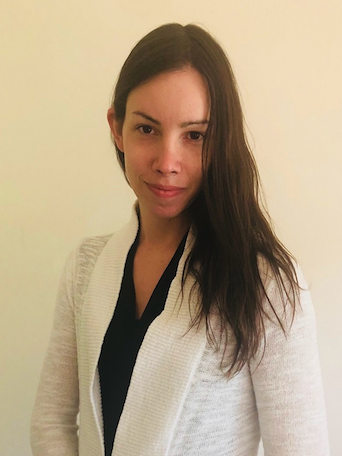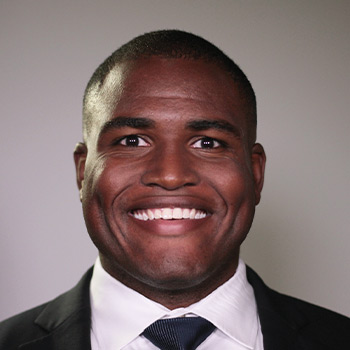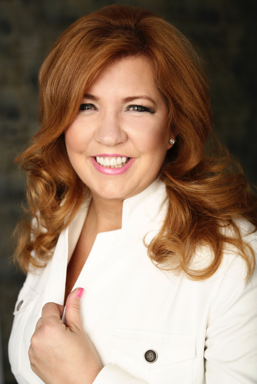Transcripts

Erik: Joining me now is Lyn Alden Investment Strategy founder, Lyn Alden. Lyn prepared a slide deck to accompany this week's interview. You'll find the download link in your research roundup email. If you don't have a research roundup email, just go to our homepage macrovoices.com. Click the red button that says looking for the downloads above Lyn's picture. Lyn, it's been way too long. It's great to get you back on the show. I want to start just by looking at your slide deck. You're talking about valuations. Boy, it seems to me like something's going on that with breath that seems unusual. And I haven't looked at it closely enough, but it just seems, particularly AI stocks and some of these things are just to the moon. Well it's creating, I think an illusion that everybody thinks that the market is off to the races. It's not the whole market, is it?
Lyn: Yeah and first of all, thanks for having me back Erik. Always happy to be here. And yeah, we're definitely seeing some big divergences in the equity market, both in terms of risk on and risk off, but also in terms of growth and value. And so for example, on the first deck there, I show Apple versus CVS. And these are just kind of two examples of large cap stocks out there. The funny thing is that analysts consensus forward earnings estimates are actually not that different between the two companies. They both had like a period of kind of two year earnings stagnation here, they both have kind of slow forward growth. Basically, they're both at the end of the day kind of value stocks, that they're not exactly fast growers. But we see Apple trading at well over 30 times earnings and has surged much higher this year. And all of it was valuation based. Whereas we look at a lot of the, you know, kind of either the cyclical value or even the defensive value. A lot of these companies are just trading at like high single digit price-to-earnings ratios. Kind of completely left for dead, totally kind of uninterested by the market. And, we can kind of go through sector by sector and see that some of them do have headwinds. For example, healthcare has been facing some regulatory headwinds, for example, but a lot of that is just, basically, there's so much risk-on condition focused in the tech sector, that a lot of other areas, especially defensive value like healthcare has just been completely left for dead.

Erik: Joining me now is Dr. Anas Alhajji, managing partner at Energy Outlook Advisors and noted keynote speaker on energy markets. Anas, it's great to get you back on the show. I'm really excited to get an update for you on your outlook on energy markets. For the benefit of any new listeners who may have missed our prior interview. Anas basically has nailed this market saying to us look, don't get too excited even though I think Anas and I agree very much in the longer term, about a bullish outlook. Anas said don't get too excited in the first half of 2023, it's not time yet. If we're gonna have a big bull run and crude oil, it's not coming until the second half. So far, that's definitely proven right. So Anas, I'm just can't wait to get you back on for an update. You nailed that call, what comes next? Is it time for this market to finally turn up? Why didn't Chinese reopening recreate demand as everyone expected it to and what should we expect next?
Anas: Thank you very much Erik. it's always a pleasure to be on MacroVoices. It was clear from the beginning. If we look at how countries open after locked down that we are going to have an increase a sharp increase simply because of the transportation sector. But for the rest of the economy to pick up, it takes time. So aside from all the ills of the Chinese economy, it is just the fact that these things take time. So the idea that we open up tomorrow, and everything is back to normal, it's not what happened. So we expected that we have increase in consumption because of the transportation sector. And then the economy will kind of improve little by little over time. So we're not that excited about China. But the issue that some analysts basically fell into the trap of the Chinese government did after reopening. As you know, because of the long period of the lockdown many students and of course, they are in the10s of millions got locked away from their families. And the same for soldiers and policemen and others. So they stayed away from their families for a very long time. When the government opened up, they literally chartered 1000s of planes and buses, etc., to move those people so they can visit their families. Some people look at that as look, this is back to normal. And this is what the trend is, but it was a one time thing. And then we'll go back to normal on the transportation sector. But for the rest of the economy, it's not that much. And we ended up with a situation now. And now since you mentioned that we nailed it on 2023. Today, we published the report on a first look at 2024. And we pointed out two issues that we overlooked in our outlook for 2023. And I think the both lessons that we learned from this are lessons for everyone. So we were really bullish on the fourth quarter of 2023. That's our view. We are still bullish, but not as bullish as before. Why? Because we never expected the Chinese to build their inventories the way they did in the last three months. Which is very dangerous because we've seen them doing this before. And we've seen them releasing this as oil prices go up.

Erik: Joining me now is 42 Macro founder Darius Dale. As always, Darius has prepared a terrific slide deck to accompany today's interview, I strongly encourage everyone to download it. Registered users will find the download link in your research roundup email. If you don't have research roundup email, it means you're not yet registered at macrovoices.com. Just go to our homepage macrovoices.com, click on the red button above Darius his picture on the homepage that says looking for the downloads. You will notice that some of the pages are blurred in this slide deck. The reason is that out of respect for Darius' paying customers we normally use the previous month's deck for these interviews. This month Darius wanted to use this month's deck because he's got some slides he wants to show you that have current up-to-date information. In order to respect for paying customers, we had to blur out at least some of the slides of the deck. So the ones that we're not talking to in this interview, please don't be alarmed if they're blurred out when you get the download. Darius, it's great to have you back. What I want to do is set the Way-back Machine to January of 2022. That's 18 months ago. You came on everybody else is saying okay, $4,800 on the S&P just about to hit 5000. We're headed much higher. Everybody's buying the dip and you're saying no. 2022 Could be a crash year were your words. I'm going to say you got that 99/100% right. The only nitpicky thing I might say is it wasn't actually a crash. It was actually fairly orderly the way that the market sold off, but you totally called that bear market. When we brought you back January of this year, everybody was convinced that the US was about to fall into imminent recession. You said no, I think that's coming, but not till the second half. And then you went on to emphasize we've had the growth event, but we haven't had the credit event yet. It's not till we get the credit event that the rest of this story unfolds. Well, Darius, I was thinking about you as I watched the news come out about first Silicon Valley Bank, First Republic, Credit Suisse. And I thought that must mean the market is about to crash. But wait a minute, the market didn't crash. But we got the credit event, or at least I think we did. What's going on?
Darius: Hey, Erik, thanks again for having me back. I'm very grateful to be a regular contributor to this program. Wonderful program. So I'll start by answering your question directly. No, we do not think the Silicon Valley Bank incident and the First Republic bank incidents was the credit event. Recall that we were sort of calling for a phase two credit cycle downturn, which is what happens to the markets when the economy is trying to price in the non-linearity of a recession. That process is still very much ahead of us. But we do not believe that process is imminent. And we still believe that there's right tail risk left to price in the equity market and credit markets.

Erik: Joining me now is JDI Research founder, Juliette Declercq. Juliette prepared a slide deck for today's interview. Registered users will find the download link in your research roundup email. If you don't have a research roundup email, just go to our homepage macrovoices.com. Click the red button above Juliette's picture that says looking for the downloads. Juliette, it's great to have you back on the show. This is our first interview of the year. And I know that you've had some really terrific calls this year. So, let's start by going through some of your recent analysis and recommendations.
Juliette: Yes sure. Thank you very much for inviting me back, Erik. Well here we are – midway through 2023. And do you know what I see? Headline inflation vanishing in a puff of smoke, and no hard landing. The rise and fall of this pandemic-induced price rollercoaster was a perfect response to the Keynesian AD-AS (Aggregate Demand - Aggregate Supply) model. And that is the very reason I could call for “immaculate” disinflation all the way back in September 2022. See those hours siting on a bench at uni learning about macro models did pay in the end. Here is how it works (see chart 1 in the chart package). The supply curve is convex; firms need increasingly higher prices to increase output when spare capacity is exhausted. In contrast, the demand curve is concave for products with “inelastic” demand. If you struggle to find alternatives, you will pay more; think of European energy in 2022. In 2021, Keynes’ prophesy cooked up a perfect storm: the negative supply shock combined with a positive demand shock to force prices into a new equilibrium on the steep (inelastic) parts of both curves.
Spare capacity was limited, and demand was relatively “inelastic” (sure, we had a load of cash, but what services could we blow it on?). So, while global output only edged up (Qo to Q1), it sent inflation through the roof (Po to P1). What happened next was about what you would expect. Everyone on the supply side suffered a massive bout of FOMO and started stockpiling like crazy. Inventories of raw materials, finished products and workers hit record levels. And that, as I argued back then, turned the pandemic famine into a feast. The problem was nobody wanted to eat anymore, they wanted to dance. So, I argued, the initial negative supply AND positive demand shocks would reverse, leading to “immaculate” disinflation: a resumption of the initial burst of inflation with no macro drama – price pressures to subside eventually with output and employment practically untouched. And that's pretty much what happened. So looking on to chart two, you can see that the record inventory build up, pull the U turn. You can see on charts, three that extreme geopolitical tensions peaked pretty much in September last year, and that collapsed the premium the geopolitical premium on commodities back to fair value. And in the end, you can see on top for that a supply demand imbalance, mirroring the COVID shock turned tremendous manufacturing inflation into actually manufacturing deflation according to the last PMI numbers. So here we are, goods price pressures have largely evaporated. If we consider last week PCE reports, we can see that the feds preferred inflation gauge, which is the PCE deflator dropped to 3.8% year on year in May, from 4.3% in April. And if you look at the three months, on a three month basis, we're actually at 2.45% annualized which is actually approaching the 2%. Target.

Erik: Joining me now is Dr. Pippa Malmgren, former presidential adviser and best selling author. Pippa, it's great to get you back on the show. Holy cow have we got a lot to talk about this week. It worked out extremely well that we were getting all kinds of requests on email and Twitter saying with the news out of Russia this weekend, you got to get Pippa back on the show, and it worked out that we were able to get you. So let's start with the Russia news. What happened this past weekend was really pretty remarkable. We had the guy who's in charge of Wagner Security Services, that's Putin's private army that you have warned MacroVoices listeners about right here on this podcast in the past. These are the guys that are kind of the elite forces, they're at the front lines. This guy Prigozhin, who's in charge of them announces publicly, that he's had it with the Russian Defense Ministry, not backing them up. Apparently, there was some kind of friendly fire incident, some helicopters that were being operated by the Russian military ended up killing or potentially may have killed some of the fighters that were working on the front lines for Wagner. And this guy literally announced, I want the head of the Ministry of Defense. I want this guy's head delivered to me on a platter, where I am in Providence outside of Moscow. And if I don't get it immediately, I'm going to drop what we're doing in this war. We're going to turn around and go back to Moscow and I'm going to find this guy and take him out myself. Moscow obviously said no, what does he do? He turns the tanks on Moscow, and they're an hour out of Moscow, when all of the sudden a deal was made, and it all goes away. Pippa, what deal was made?
Pippa: It's such an extraordinary situation. And look, this is literally the new Kremlinology meaning no one really has a grip on the situation. But there are different scenarios that are worth playing around with. And there may be truth and all of them. You know, this is a moving puzzle. But I think, look, what matters is when it became clear that Russia was not able to win in Ukraine that a superpower with nuclear weapons that hugely outnumbered and outgunned the Ukrainians was not able to actually decisively win, then the blame game started on the Russian side. You know, whose fault is it? And you know, in Russia, you can't really go back and ask the question, is it the President's fault for starting it, partly because they have such a tradition in Russia that it's sort of implicitly assumed that the leader is pretty much appointed by God, right? It's a very medieval kind of thought process about leadership there. They never really had the Reformation, that meant that leadership came from the people, their view is leadership is still bestowed by mystical forces. And so you can't really challenge the leader in philosophical terms. But also, you can't do it practically, because every single person who even attempted to say uhm excuse me, but this is not working was pretty much immediately killed. And there's a long list of all of President Putin's formerly close allies that have suddenly ended up at the bottom of a building somewhere. And part of the trouble with that strategy of eliminating all of your inner circle is there's no inner circle left. And that was starting to happen.
Now others, like Prigozhin who had been very tightly aligned with President Putin, and as you say, effectively running a sort of private army on his behalf. Pregozhin starts to smell blood in the water that Putin can't get things done here. And so he goes to the front line, he basically says give me the front line, let me handle this. And the Russian military kind of went if you would like to do that, please be my guest, you go ahead. So he goes to the front line where he starts getting hurt, and immediately blames the Russian military. Now, let's back up a little bit because you got to understand the internal fight and really it's a civil war. The internal fight is between on one side, you have what they call the Siloviki, which is President Putin comes from the intelligence services which it used to be the KGB, then it became the FSB and they aligned pretty strongly with organized crime. And so that group has been in charge pretty much since Gorbachev left office and the Soviet Union ceased to exist, one way or another. And over those years, that group have benefited enormously financially and otherwise, from being the guys in charge. And now they've said to the military, we want you to execute this war on our behalf, and the military who are a totally separate group, they're looking at each other going hey, why are we doing this exactly? Because there's no compelling argument as to why we have to have this extremely bloody war with the Ukrainians who traditionally the Russians view as you know, brothers and sisters, right? It's kind of maybe like, you know, Northern Ireland and the Irish like, they have pretty good reasons. It's not even as divisive as the Irish because they tend to share the same religion as well. So then Putin basically says, I want you to use nuclear weapons, or we're going to get ready to use nuclear weapons, and he threatens the west with this. And the Russian military kind of go hey, I don't want to be executing a nuclear strike on behalf of a bunch of guys that have never helped me out. Right, that have never done anything for the Russian military. So then an internal fight begins and the Wagner teams start blaming the Russian military for insufficient ammunition, insufficient decent weapons and the Russian military are like, hey that's your war, right? You guys started this... Don't blame us so this blame game breaks out.
And then yes you say we had some maybe friendly fire. We've certainly had, you know, a contest between these two parties. And next thing, you know, the head of the Wagner group says okay this is ridiculous. I'm turning my guns on the Russian military. And I'm taking this whole thing to Moscow. And I've got a problem with the way President Putin is running all this because he's not running a very well and I could do a better job. Now, that alone is rather extraordinary. But maybe what Prigozhin sees is this possibility that, and I've even argued on your podcast that in a way, when the Soviet Union ceased to exist, it actually didn't go through the full sort of break up and restoration that it should have because the intelligence services took control of the country. So maybe we're witnessing the breakup of the Soviet Union now actually, it just got postponed, it got delayed by this intervention. But now there's this fight. So then we get to Prigozhin basically says, I'm going to Moscow and I'm against both Putin and the Russian military. And then 100 miles from Moscow, he suddenly turns around and goes back to this area of Rostov where he had been. And as you say, the question is why. Now we know that Lukashenko who has been the leader of Belarus and very closely aligned with President Putin seems to have flown out with his family at midnight, the night before Prigozhin announces that there's a deal. And weirdly turns off the transponders on his aircraft while they're over Russian AirSpace as they make their way to Bodrum in Turkey. So you're like okay, we now have the leader of Belarus, which, by the way, is where all of these Russian nuclear weapons have just been placed. Suddenly, he looks like he's bolting, but he ends up cutting a deal with Prigozhin. The question is, what was that deal? Now, there's some speculation that the two of them actually the three of them have been working together from the start, that this is all a ruse, literally, you know, that's the origin of that word is this is a Russian theatrical sleight of hand and that actually, Putin and Prigozhin were working together with Lukashenko to create this big story that actually allows the Russian forces in the Wagner forces to pull back without losing face. Right? because after all, they left the war zone that they were in with the Ukrainians. But they've ended up 100 miles closer to their Ukrainian targets than they were before. So is this just about repositioning or is it something more are profound and I can't help but look at the broader landscape and say, is it really a total coincidence that for the two weeks before this happened, the US and NATO were moving and NATO Allies were moving an enormous number of aircraft into Western Europe enough that it interfered with a lot of flight schedules.
Now, it was a long planned exercise. But nonetheless, did that send a signal to the Russian side that, you know after all, I've argued on this podcast, the war is not just in Ukraine, this is a much larger confrontation that's been happening in space, in the Arctic, in the Baltic, you know, in lots of different locations with submarine cables being cut to interrupt internet traffic. Was it that the West started to get really nervous that Putin was genuinely going to use a nuclear weapon and was going to escalate this war, and they were sending a message, don't even try. And that sends a message to Prigozhin and the Russian military. And then I personally just to finish, I've made the argument that actually, ironically, a good result from the western perspective would be if the Russian military emerged victorious from all this, because the thing is, Prigozhin and Wagner are arguably worse than Putin and would be less measured if they managed to get their hands on nuclear capability. Whereas the Russian military have, you know, a long tradition and understand the danger of nuclear weapons and are very likely to engage in talks with the West to de-escalate all of this. So I keep asking, where is Gerasimov who is the most respected person in the Russian military who's disappeared? It's not Shoigu who is the defense minister who's just a close ally of President Putin's but Gerasimov, where is he and what is his actual position? And until we see where is Gerasimov, it's kind of hard to judge this picture. But basically, it's an internal civil war is what we're witnessing.
MACRO VOICES is presented for informational and entertainment purposes only. The information presented in MACRO VOICES should NOT be construed as investment advice. Always consult a licensed investment professional before making important investment decisions. The opinions expressed on MACRO VOICES are those of the participants. MACRO VOICES, its producers, and hosts Erik Townsend and Patrick Ceresna shall NOT be liable for losses resulting from investment decisions based on information or viewpoints presented on MACRO VOICES.
